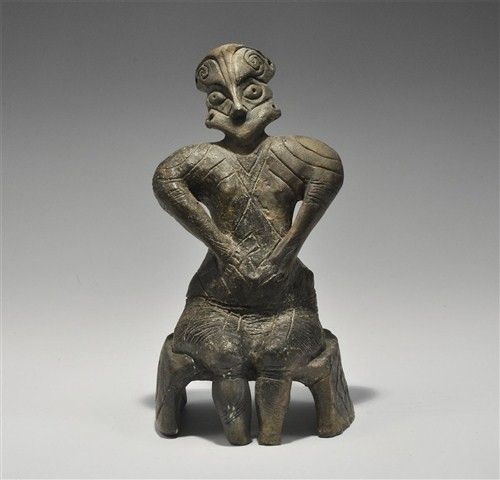The end of the neolithic period marked the start of the chalcolithic period at 4 500 b c then was followed by bronze age at 3 500 b c where copper or bronze was mainly utilized as the chief hard substance for the production of tools and weapons.
Ceramic figures from the neolithic era.
The people of the neolithic period learned to use pottery for everyday living.
These sequences were influenced respectively by the ceramic.
This album includes not only neolithic but also chalcolithic pottery.
The ceramic tradition of northeastern persia devel oped in parallel but distinct sequences in the gorgān lowlands and the dāmḡān highlands including the parts of the atrak region adjacent to both.
These two figures are the earliest known examples of ceramic art from this time period.
The art of these distinct periods is comprised of the arts of people that had progressed from hunter gatherers to permanent settlers mainly living in farming communities.
The paleolithic period is.
The pottery neolithic pn or late neolithic ln began around 6 400 bce in the fertile crescent succeeding the period of the pre pottery neolithic.
The neolithic ˌ n iː oʊ ˈ l ɪ θ ɪ k also known as the new stone age the final division of the stone age began about 12 000 years ago when the first developments of farming appeared in the epipalaeolithic near east and later in other parts of the world the neolithic division lasted in that part of the world until the transitional period of the chalcolithic from about.
The chinese contribution to ceramic art is one of uncontested brilliance.
Neolithic eras began after the end of the last ice age and vary across cultures.
Explore the amazingly rich period of chinese ceramic production from the neolithic era through the sung dynasty.
To create cave art during the upper paleolithic period people mixed yellow and brown from with iron to make red tones and created black coloring from manganese or charcoal.
They include the following.
See more ideas about neolithic vinca prehistoric art.
The enthroned goddess of catal huyuk catalhoyuk c 6000 bce baked clay statuette of a nude female form representing a fertile mother goddess about to give birth.
The neolithic period through the bronze age in northeastern and north central persia.
Aug 7 2017 the cucuteni culture is found primarily in romania bulgaria and is known by it s kindred culture the vinca in serbia.
8000 bc 500 ad.
By then distinctive cultures emerged with pottery like the halafian turkey syria northern mesopotamia and ubaid southern mesopotamia.




























